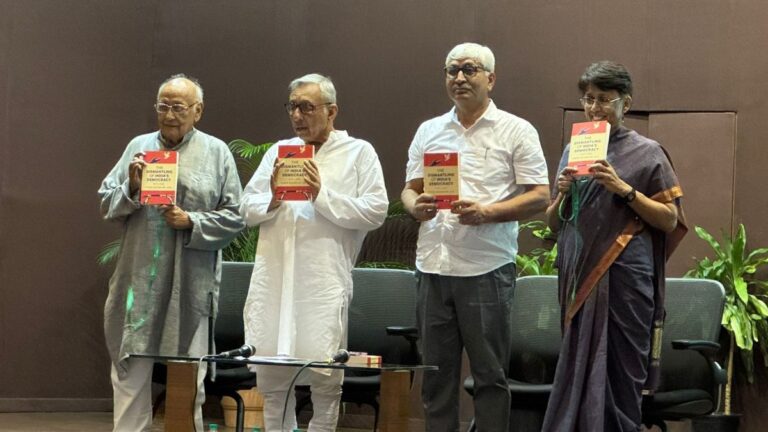The Rise of BJP and Its Impact on Indian Democracy
In recent discussions surrounding Indian politics, former Congressman Mani Shankar Aiyar highlighted a significant evolution in political loyalties since the 1990s. This transformation, he argues, was fueled by a coalition between small businessmen and politicians, initially supporting the Congress Party.
Aiyar emphasizes that this localized alliance eventually shifted its allegiance to the Bharatiya Janata Party (BJP), the primary representative of Hindutva ideologies. He remarks, “This group sought out the most anti-Congress party available—the BJP.” This analysis sheds light on the complex roots of the BJP’s rise to power and its implications for India’s democratic fabric.
Insights from “The Dismantling of India’s Democracy: 1947-2025”
The remarks were made during the launch of Prem Shankar Jha’s book, “The Dismantling of India’s Democracy: 1947-2025.” The event featured a panel discussion that included Aiyar, Delhi School of Economics professor Nandini Sundar, and Jha himself, moderated by Delhi University professor Apoorvanand. The panel delved deeply into the thematic elements of the book, focusing on the erosion of democratic practices in India.
Understanding Democratic Erosion
Ravi Singh, the publisher of Speaking Tiger, provided insights into Jha’s work, stating, “To cure a sickness, it is essential to identify and comprehend its causes.” The book argues that the foundations of India’s diverse and tolerant democracy have gradually been undermined, particularly in the years following 2014, highlighting a concerning trend toward authoritarianism.
Debate on India’s Democratic Nature
Nandini Sundar offered critical perspectives during the discussion. While she acknowledged the breadth of Jha’s analysis, she disagreed with labeling India as a liberal democracy. She raised crucial points about historical injustices, including the Armed Forces Special Powers Act and the treatment of regions like Kashmir, suggesting that India has always exhibited traits of an illiberal democracy.
Vote Share and Public Sentiment
Aiyar shifted the conversation to the BJP’s electoral performance, revealing that the party’s vote share in the 2014, 2019, and projected 2024 elections was around one-third. He commented, “This indicates that approximately two-thirds of Indians have opted against the BJP, suggesting that many Hindus do not equate Hindutva with their faith.” This statistic underscores the complexities within the Indian electorate and the continuing challenges the BJP may face.
Future Possibilities for Indian Democracy
With his optimistic take, Aiyar mentioned the potential for the INDIA alliance to prevail in upcoming elections, referencing the notion of a possible ‘Indian Aragalaya’—a term connected to the 2022 protests in Colombo. His insights resonate with concerns about the future of democracy in India amidst rising political tensions.
This discussion encapsulates the urgent need for dialogue on democracy, governance, and the socio-political dynamics that define contemporary India. As the country approaches pivotal elections, the interplay between economic interests, political alliances, and public sentiment will shape its democratic landscape.
